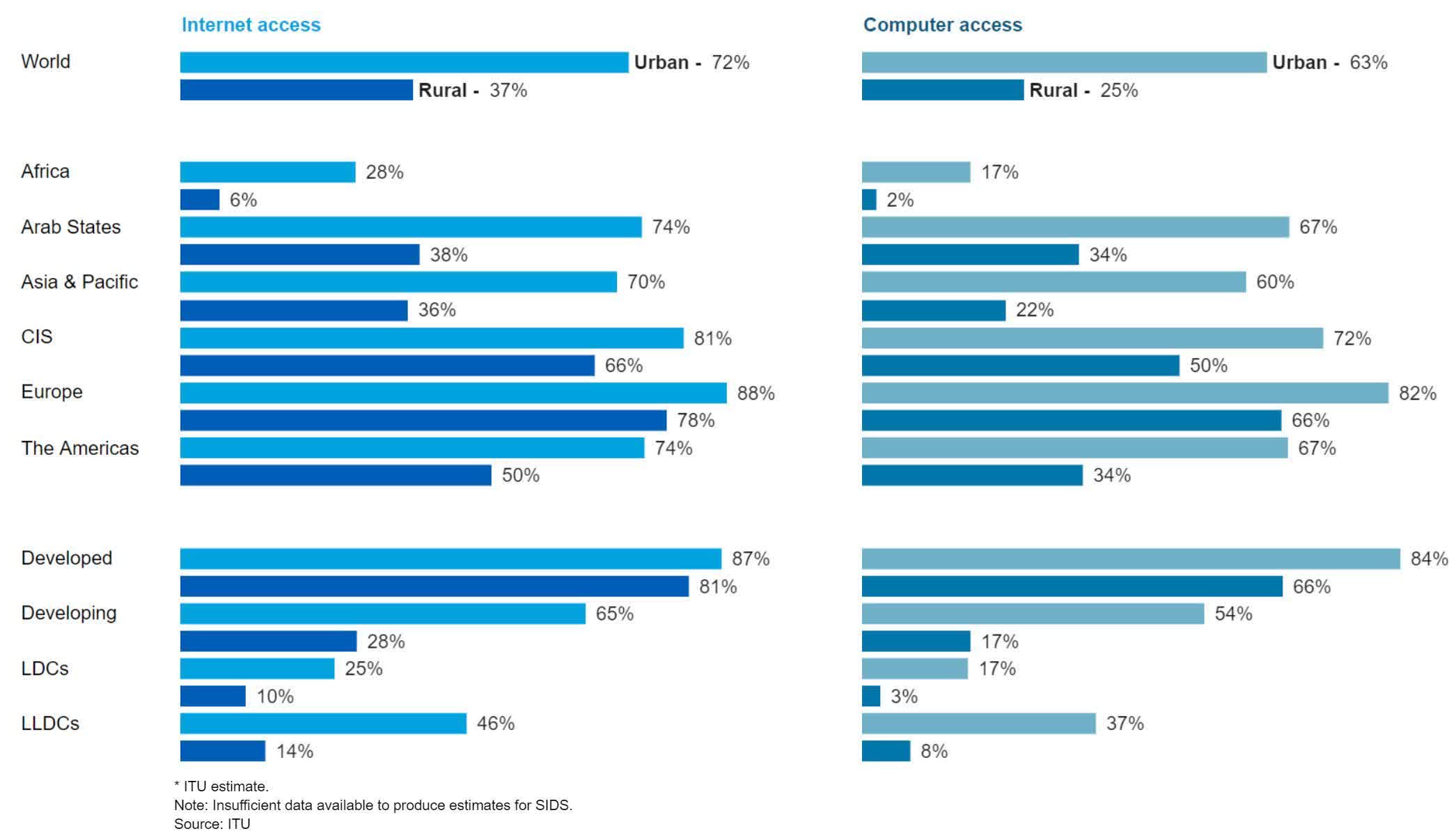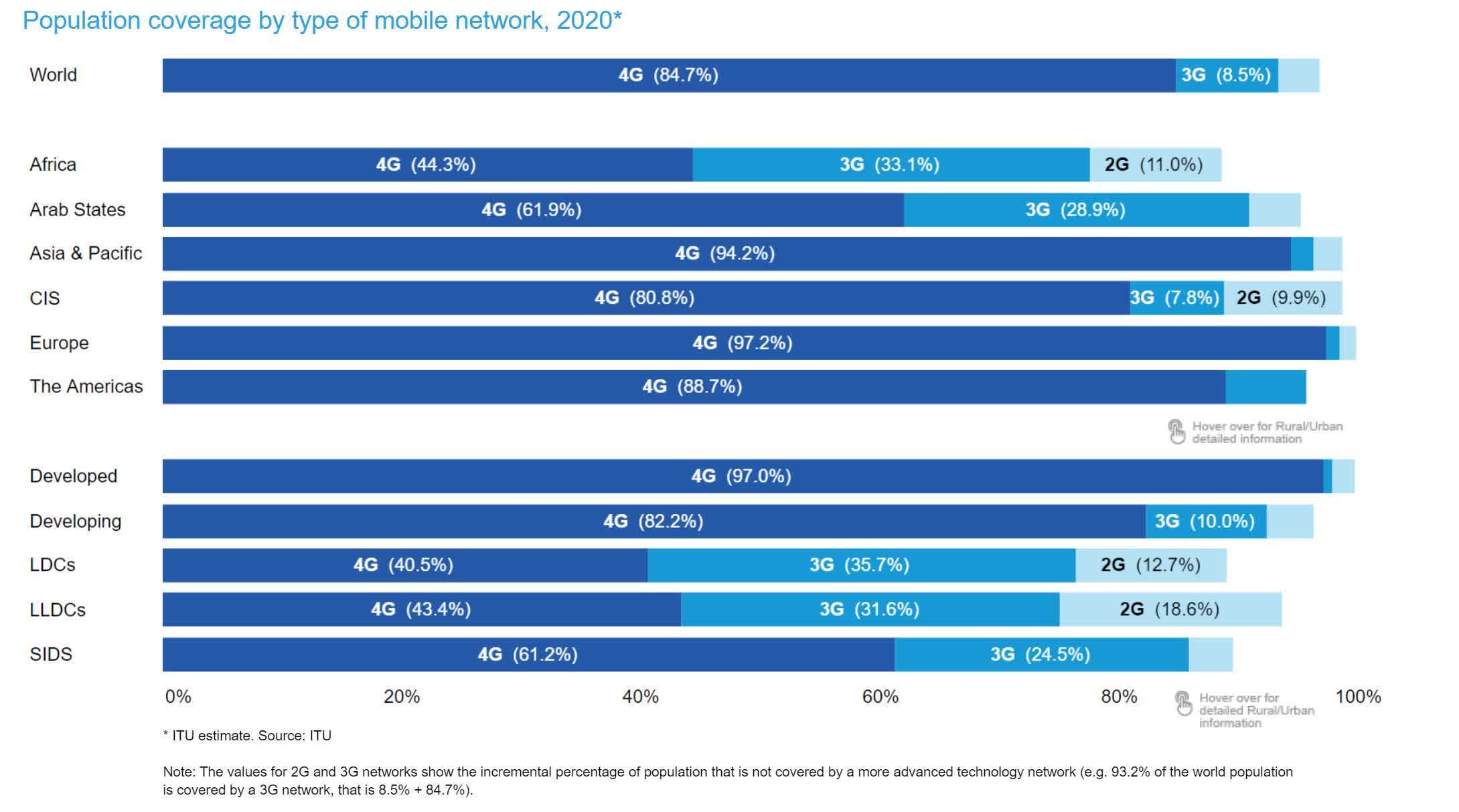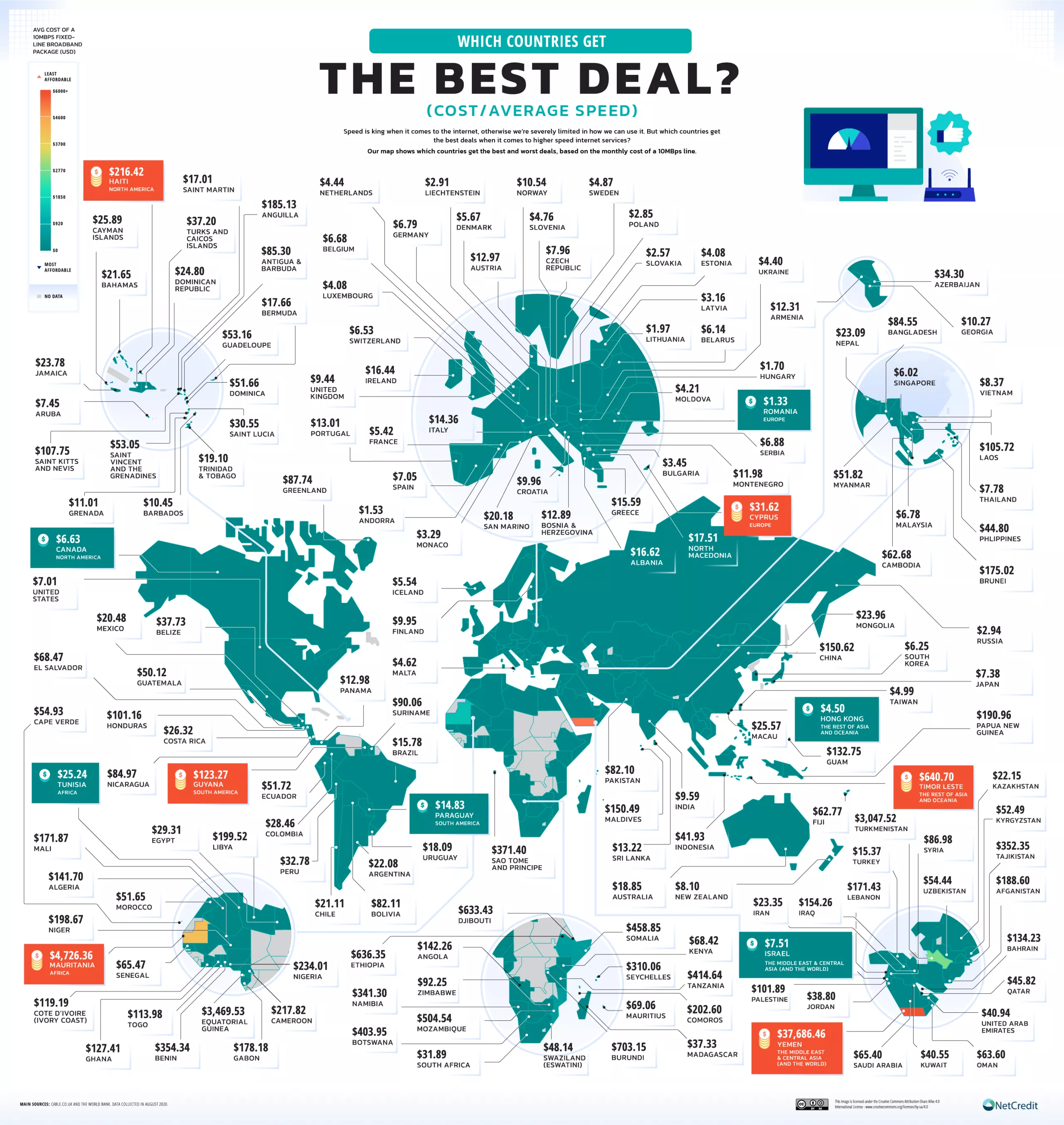In a nutshell: You might think that most people in the world have access to the internet at home, but the world's a big place. According to new research, about 72 percent of households in urban areas globally had access to home internet in 2019. For rural areas, that figure fell to just 37 percent.

In the United Nation's International Telecommunication Union (ITU) annual Measuring Digital Development: Facts and figures report, the gap between urban and rural home internet access was small in most developed countries. In developing nations, however, around 2.3 times more households in urban locations had access than in rural zones.
The disparity between home internet accessibility in Africa compared to developed countries was especially glaring. Only 28 percent of households in urban areas within the continent had access, but that's still 4.5 times higher than in rural areas (6.3 percent).
In most other areas, household internet access in urban areas was between 70 and 88 percent, while rural areas vary between 37 and 78 percent.
The urban-rural divide was also present when it came to households with computers: 63 percent in urban locations, 25 percent in rural areas.
In terms of internet coverage, almost 85 percent of the world will be covered by 4G by the end of 2020, which marks a two-fold increase since 2015. Annual growth has been slowing, though, with 2020 just 1.3 percentage points higher than 2019, and while a massive 93 percent of the world's population will have access to at least 3G before the year is out, that's just half a percentage point higher than last year.
2020 also saw the number of mobile-cellular telephone subscriptions decline for the first time in history, dropping from 108 subscriptions per 100 inhabitants in 2019 to 105 this year. The trend was driven by developing countries—the YoY figure was higher in developed nations. It's unclear whether the decline was a result of the pandemic.
"With the COVID-19 pandemic wreaking havoc on lives, societies, and economies around the world, many of our daily activities have moved online, throwing a sharp spotlight on global connectivity," said ITU director Dorren Bogan-Martin.
A recent report showed the massive variation between the least- and most-affordable internet around the world. Again, the difference between wealthy and emerging countries is vast.
https://www.techspot.com/news/87794-less-than-half-world-rural-areas-have-access.html


